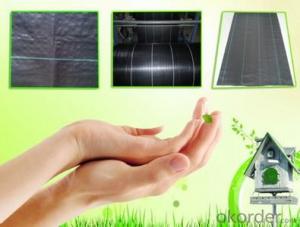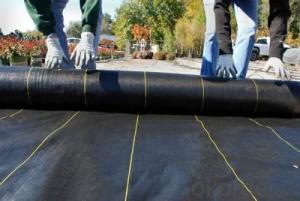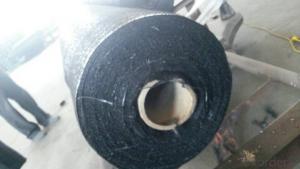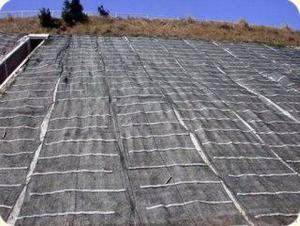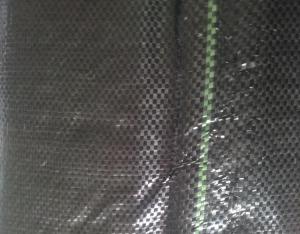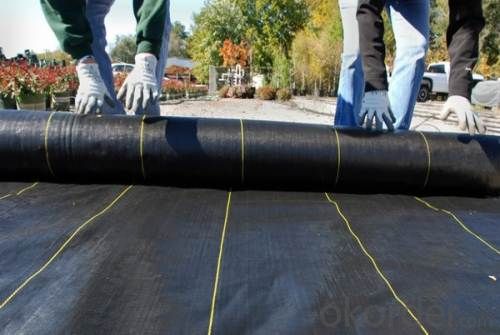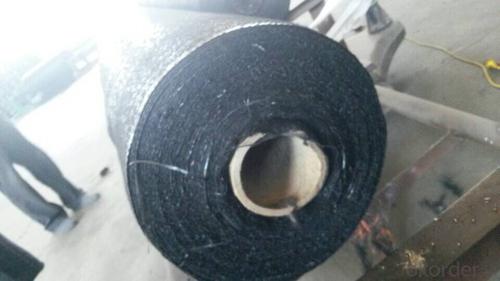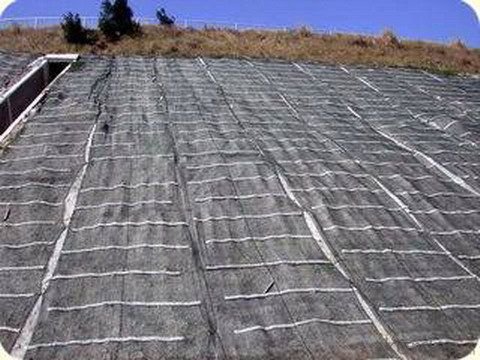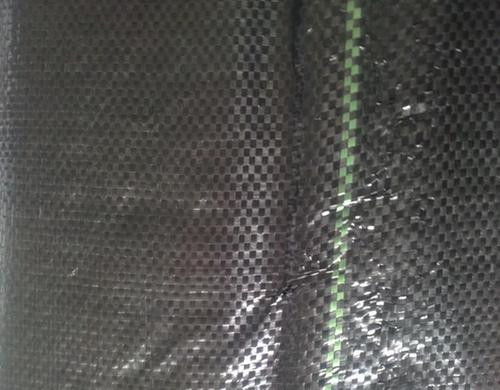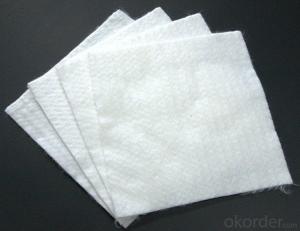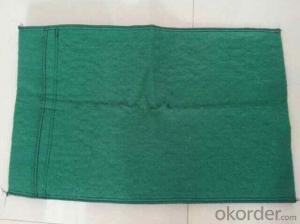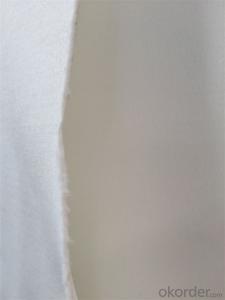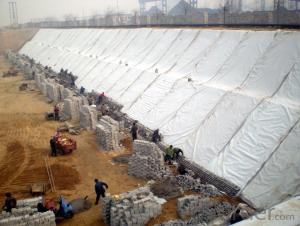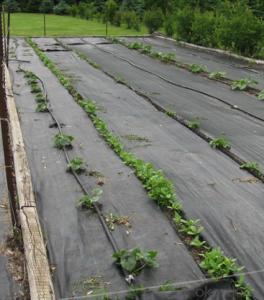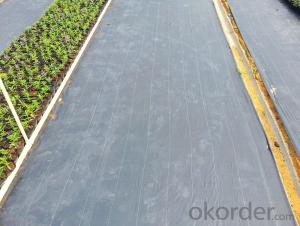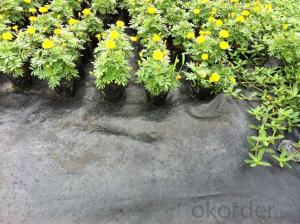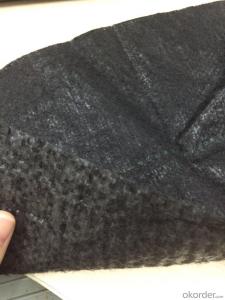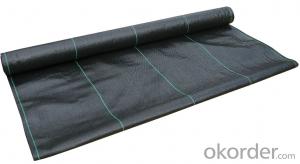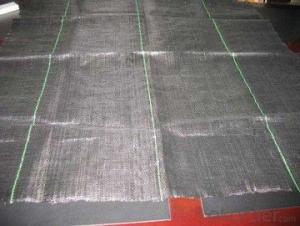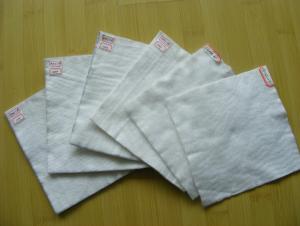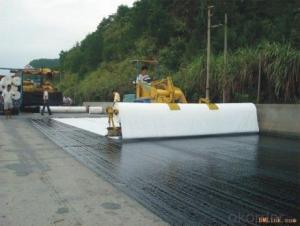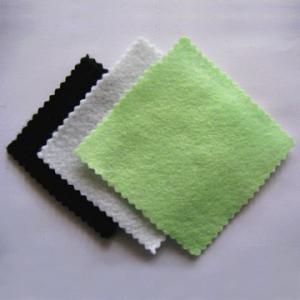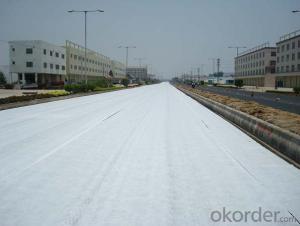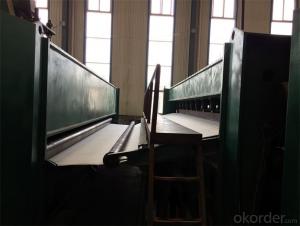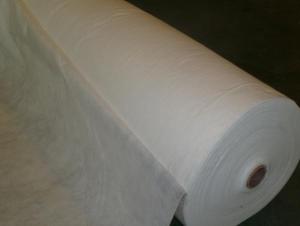Contech Geotextile Recycled Agricultural Non-Woven Fabric/Weed Barrier/Plant Cover
- Loading Port:
- Qingdao
- Payment Terms:
- TT OR LC
- Min Order Qty:
- 10000 m²
- Supply Capability:
- 500000 m²/month
OKorder Service Pledge
OKorder Financial Service
You Might Also Like
Product Description
The weed control mat is made of environmentally friendly raw materials, pp woven fabric. It used to prevent the growth of weed, without the use of potentially dangerous chemical sprays or labor intensive hoeing. Once installed, weed mat will continue providing protection for years without maintenance.
They are permeable fabrics, which allow air, water and nutrients to pass through, and designed to block out the sun to reduce photosynthesis and stop weed growth.
Specification
ROPERTY | ASTM TEST METHOD | Minimum Average | Minimum Average |
Mass per unit Area | ASTM D-5261 | 3.0 oz/yd2 | 100 g/m2 |
Grab Tensile | ASTM D-4632 | 145 lbs | 660 N |
Grab Elongation | ASTM D-4632 | 15% | 15% |
Trapezoid Tear | ASTM D-4533 | 55 lbs | 245 N |
Water Flow Rate | ASTM D-4491 | 5 gal/min/ft2 | 203 L/min/m2 |
UV Resistance | ASTM D-4355 | 70% @ 500 hrs | 70% @ 500 hrs |
ROLL DIMENSIONS | |||
Roll Width | 0.9m (3’) | 1.8m (6') | 2.7m (9') |
Roll Length | 91.4m (300’) | ||
Roll Weight | 8kgs (17lbs) | 16kgs (34lbs) | 24kgs (52bs) |
Features
1. Weed suppressant and drainage control landscaping fabric
2. Easy to use, Environmentally friendly
3. Allows water, air and nutrients through, suppressing weeds without the use of chemicals
4. Reduces the level of watering required due to the slower rate of water evaporation
Application
1. Excellent Weed Control
2. Moisture, fertilizers, air reach plants to allow for healthy soil
3. Good water and air permeability
4. Exceptional toughness and strength
5. Durable, tear-resistant; won't rot or mildew
6. Lightweight, easy to install, follows natural ground contours
7. Ideal for use in landscaped beds, under decks and walkways.
Packaging & Delivery
| Packaging Details: | Packed In Roll Or In Bales Or Cartons Or According To Customers Requirement |
| Delivery Detail: | 20 Days After Order Confirmed |
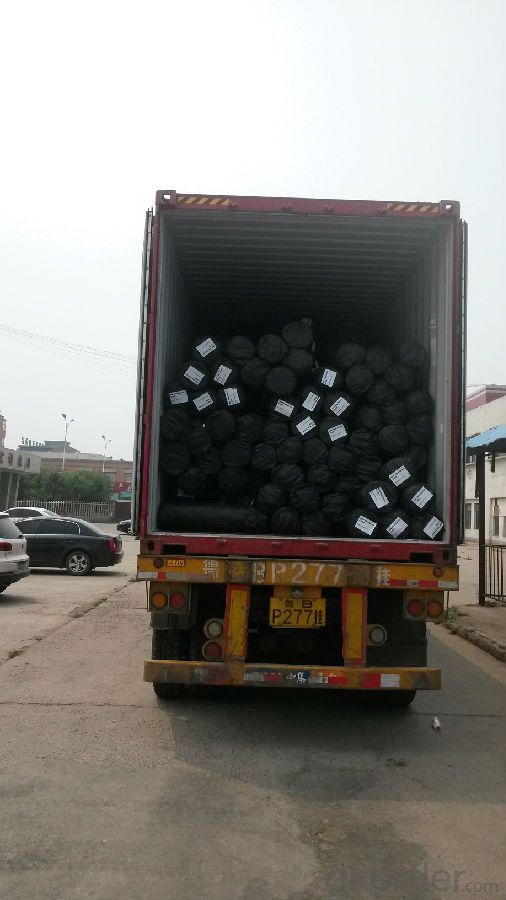
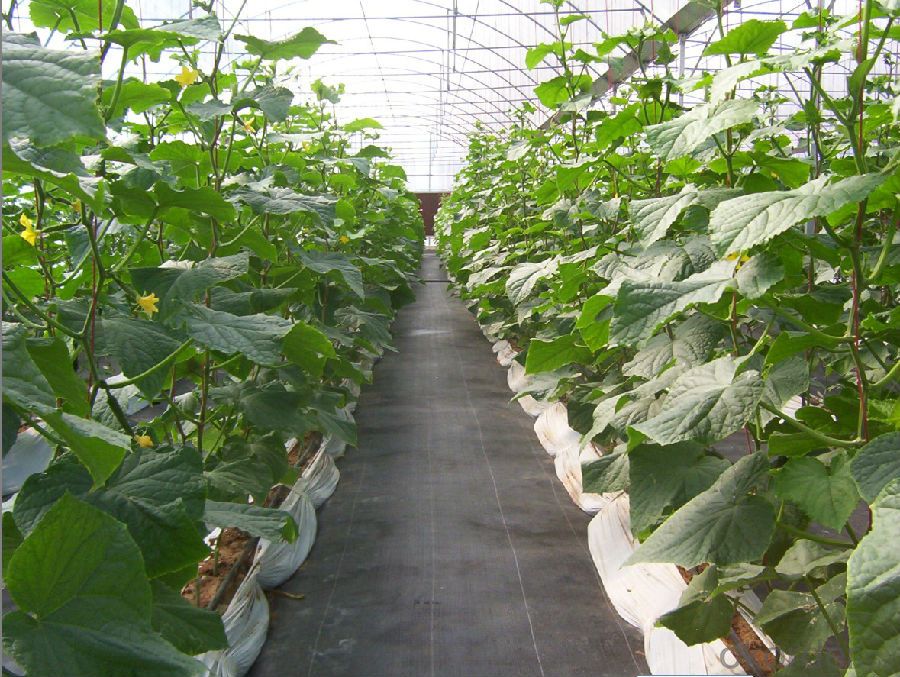
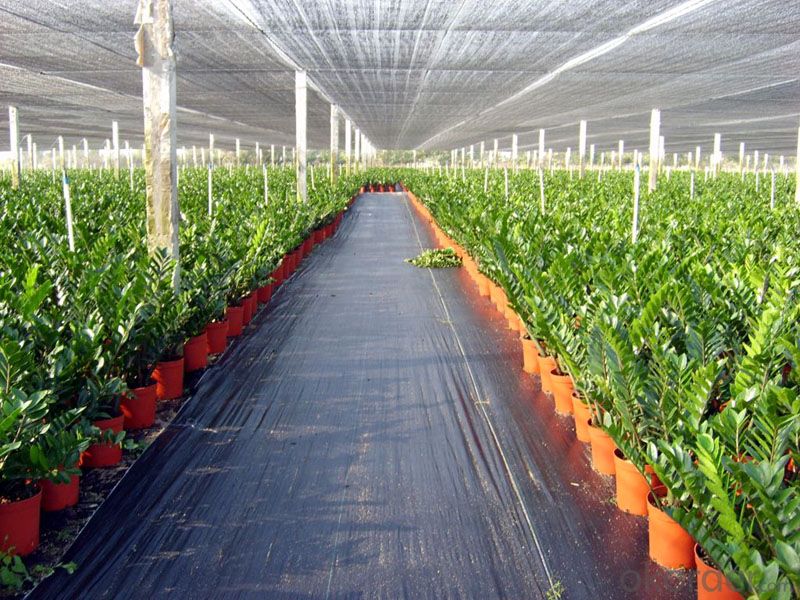
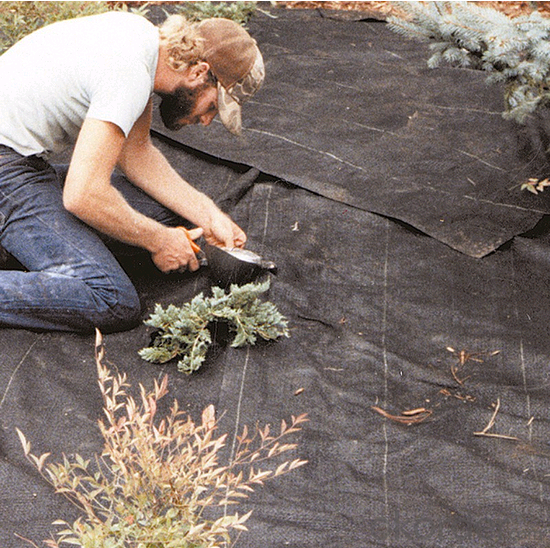
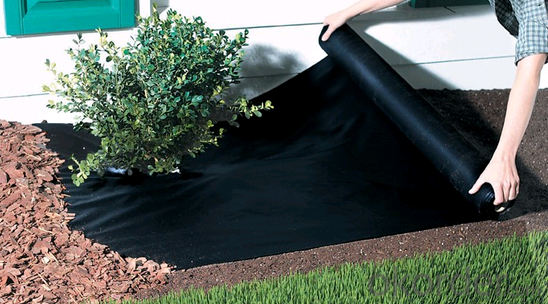
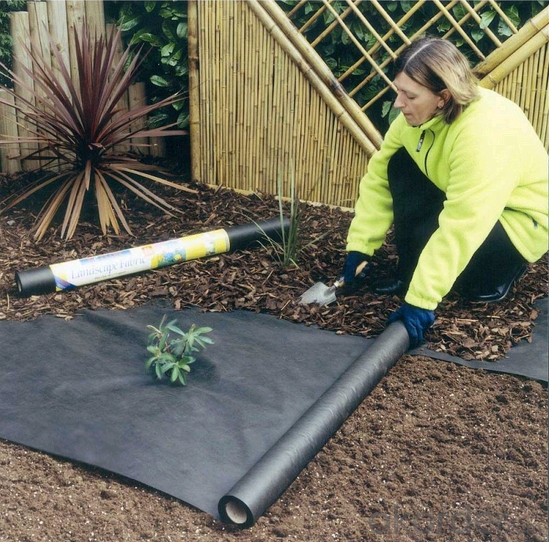
FAQ
1, Samples Policy
Samples are free, but the freight is on customers' charge
Samples will usually be sent out in one day.
2, Prices
As for the prices, we need you to provide us weight, color, width and usage so that
we can quote you best.
3, How to place an order?
Inquiry
Reply
Sample
Contract
Receiving deposit& production
Testing& Packing
Delivery
Receiving
- Q: Can geotextiles be used in the construction of reservoirs?
- Yes, geotextiles can be used in the construction of reservoirs. Geotextiles are commonly used as a separation and filtration layer in reservoir construction to prevent the mixing of different soil layers, provide stability, and control erosion. They can be deployed to reinforce embankments, line channels, or act as a barrier against seepage, ultimately enhancing the overall performance and longevity of the reservoir.
- Q: Do you have a drainage board and a geotextile on the basement roof?
- Hello, generally do not require re-test Huazhi geotextile materials, manufacturers need to answer for your needs
- Q: Who can talk about geogrid, fiberglass and geotextile What is the difference, from the material function, use all aspects of speaking, if the answer is good, I will add more points
- (Woo Yu. Friendship Plaza)
- Q: What are the applications of geotextiles in coastal engineering?
- Geotextiles have several applications in coastal engineering, including shoreline protection, erosion control, and sediment filtration. They are used to stabilize and reinforce coastal structures such as revetments, breakwaters, and seawalls. Geotextiles also help in preventing soil erosion by acting as a barrier between the beach or dune and the water, reducing the impact of wave action. Additionally, they can be used to filter sediment and prevent the clogging of drainage systems in coastal areas. Overall, geotextiles play a crucial role in maintaining and safeguarding coastal environments.
- Q: Filament geotextile in the storage should pay attention to what matters
- Do not explode, or do not store in a dark, wet place, avoid rain
- Q: How do geotextiles help with soil stabilization in construction sites?
- Geotextiles help with soil stabilization in construction sites by providing a barrier that separates and reinforces different layers of soil. They prevent soil erosion, control sediment movement, and enhance the overall stability of the ground. Additionally, geotextiles improve drainage and filtration, allowing excess water to pass through while retaining soil particles, which ultimately strengthens the construction foundation.
- Q: Can China produce polypropylene filament geotextiles? Google knows
- Yes, I am professional production, wish smooth
- Q: Do geotextiles have any environmental benefits?
- Yes, geotextiles have several environmental benefits. They help to control erosion by stabilizing soil and preventing sediment runoff, which protects water quality and aquatic ecosystems. Geotextiles also promote vegetation growth by providing a stable base for plant roots to establish, aiding in the restoration of degraded areas. Additionally, they can be used in waste management to prevent the leaching of harmful substances into the soil and groundwater. Overall, geotextiles play a crucial role in sustainable land management and have positive environmental impacts.
- Q: What are the factors to consider when designing geotextile-reinforced slopes?
- When designing geotextile-reinforced slopes, there are several factors that need to be taken into consideration. These include the type and strength of the geotextile material, the angle of the slope, the height of the slope, the soil properties, the potential for water infiltration and drainage, the stability of the slope, and the overall aesthetic requirements. Additionally, factors such as the surrounding environment, climate, and any potential environmental impacts should also be considered during the design process.
- Q: Can geotextiles be used in underground drainage systems?
- Yes, geotextiles can be used in underground drainage systems. Geotextiles are often used as a filter and separator in these systems to prevent the migration of fine particles and to enhance the overall performance and longevity of the drainage system.
Send your message to us
Contech Geotextile Recycled Agricultural Non-Woven Fabric/Weed Barrier/Plant Cover
- Loading Port:
- Qingdao
- Payment Terms:
- TT OR LC
- Min Order Qty:
- 10000 m²
- Supply Capability:
- 500000 m²/month
OKorder Service Pledge
OKorder Financial Service
Similar products
Hot products
Hot Searches
Related keywords
